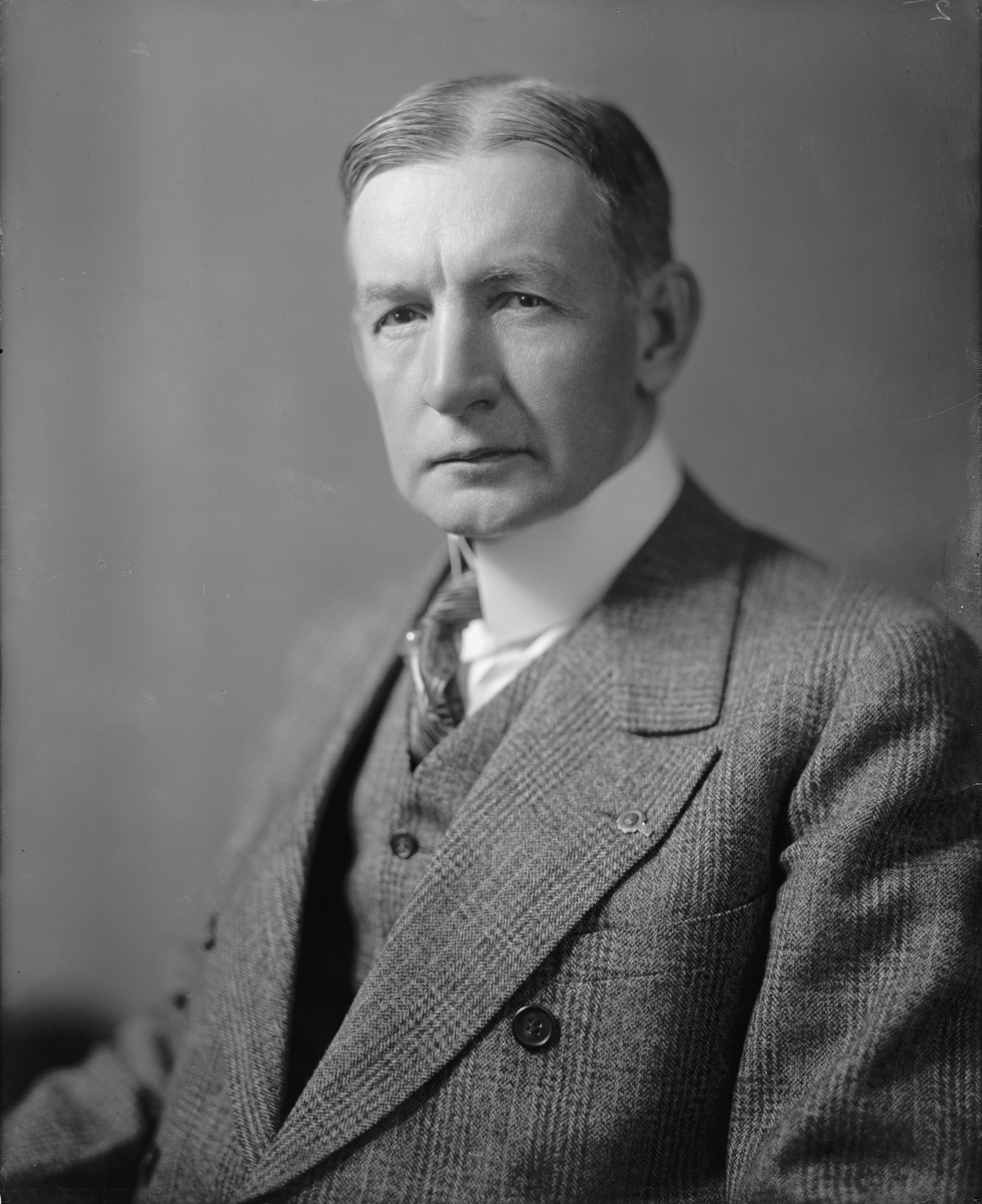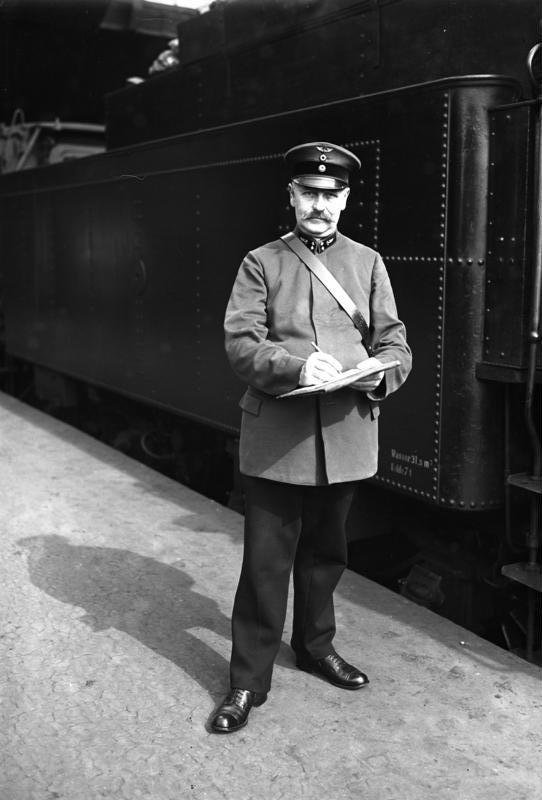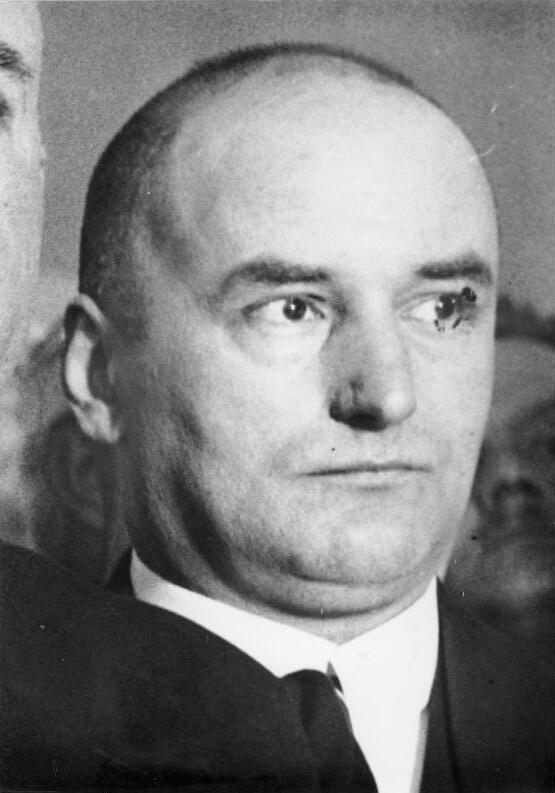|
Rudolf Oeser
Rudolf Oeser (13 November 1858 – 3 June 1926) was a German journalist and liberal politician. From 1922 to 1924 he was a member of several governments of the Weimar Republic, serving as Minister of the Interior and Minister of Transport. Early life and career Oeser was born on 13 November 1858 at Coswig, Anhalt, in the Duchy of Anhalt as the son of a manufacturer. He worked as a book trader but then studied philosophy and economics and became a journalist. In 1890-92 he was the editor in chief of the ''Ulmer Zeitung'' and then joined the business editors of the ''Frankfurter Zeitung''. In 1902, he became the head of the editorial team for Germany. He was a member of the German People's Party (DtVP) and then the FVP. In 1902, Oeser was elected to the Landtag of Prussia for the constituency of Frankfurt am Main. He was also a member of the Reichstag from 1907 to 1911, arguing for tax breaks for retail traders, the public control of corporate cartels and syndicates and for change ... [...More Info...] [...Related Items...] OR: [Wikipedia] [Google] [Baidu] |
Weimar Republic
The German Reich, commonly referred to as the Weimar Republic,, was a historical period of Germany from 9 November 1918 to 23 March 1933, during which it was a constitutional federal republic for the first time in history; hence it is also referred to, and unofficially proclaimed itself, as the German Republic. The period's informal name is derived from the city of Weimar, which hosted the constituent assembly that established its government. In English, the republic was usually simply called "Germany", with "Weimar Republic" (a term introduced by Adolf Hitler in 1929) not commonly used until the 1930s. After the end of the First World War (1914–1918), Germany was exhausted and sued for peace in desperate circumstances. Awareness of imminent defeat sparked a revolution, the abdication of Kaiser Wilhelm II, formal surrender to the Allies, and the proclamation of the Weimar Republic on 9 November 1918. In its initial years, grave problems beset the Republic, such as h ... [...More Info...] [...Related Items...] OR: [Wikipedia] [Google] [Baidu] |
Landtag Of Prussia
The Landtag of Prussia (german: Preußischer Landtag) was the representative assembly of the Kingdom of Prussia implemented in 1849, a bicameral legislature consisting of the upper House of Lords (''Herrenhaus'') and the lower House of Representatives (''Abgeordnetenhaus''). After World War I and the German Revolution of 1918–19 the '' Landtag'' diet continued as the parliament of the Free State of Prussia between 1921 and 1934, when it was abolished by the Nazi regime. History Kingdom of Prussia In the course of the 1848 Revolution, King Frederick William IV of Prussia and his Minister Gottfried Ludolf Camphausen had agreed to call for the general election of a national assembly in all Prussian provinces. The Prussian National Assembly however was dismissed by royal decree of 5 December 1848 and the king imposed the Constitution of Prussia. The constitution, though reactionary, at least provided a bicameral parliament, consisting of a First Chamber (''Erste Kammer'', cal ... [...More Info...] [...Related Items...] OR: [Wikipedia] [Google] [Baidu] |
German National People's Party
The German National People's Party (german: Deutschnationale Volkspartei, DNVP) was a national-conservative party in Germany during the Weimar Republic. Before the rise of the Nazi Party, it was the major conservative and nationalist party in Weimar Germany. It was an alliance of conservative, nationalists, reactionary monarchists, völkisch and antisemitic elements supported by the Pan-German League.Nicholls, David (2000) ''Adolf Hitler: a biographical companion'' Oxford: ABC-CLIO. p.178. Quote: "The main nationalist party the German National People's Party DNVP was divided between reactionary conservative monarchists, who wished to turn the clock back to the pre-1918 Kaisereich, and more radical volkisch and anti-semitic elements. It also inherited the support of old Pan-German League, whose nationalism rested on belief in the inherent superiority of the German people" It was formed in late 1918 after Germany's defeat in World War I and the November Revolution that top ... [...More Info...] [...Related Items...] OR: [Wikipedia] [Google] [Baidu] |
Nazi Party
The Nazi Party, officially the National Socialist German Workers' Party (german: Nationalsozialistische Deutsche Arbeiterpartei or NSDAP), was a far-right political party in Germany active between 1920 and 1945 that created and supported the ideology of Nazism. Its precursor, the German Workers' Party (; DAP), existed from 1919 to 1920. The Nazi Party emerged from the extremist German nationalist, racist and populist paramilitary culture, which fought against the communist uprisings in post– World War I Germany. The party was created to draw workers away from communism and into nationalism. Initially, Nazi political strategy focused on anti– big business, anti-bourgeois, and anti-capitalist rhetoric. This was later downplayed to gain the support of business leaders, and in the 1930s, the party's main focus shifted to antisemitic and anti-Marxist themes. The party had little popular support until the Great Depression. Pseudoscientific racist theories were ... [...More Info...] [...Related Items...] OR: [Wikipedia] [Google] [Baidu] |
Dawes Plan
The Dawes Plan (as proposed by the Dawes Committee, chaired by Charles G. Dawes) was a plan in 1924 that successfully resolved the issue of World War I reparations that Germany had to pay. It ended a crisis in European diplomacy following World War I and the Treaty of Versailles. The plan provided for an end to the Franco-Belgian occupation of the Ruhr, and a staggered payment plan for Germany's payment of war reparations. Because the Plan resolved a serious international crisis, Dawes shared the Nobel Peace Prize in 1925 for his work. The Dawes Plan was put forward and was signed in Paris on August 16, 1924. This was done under the Foreign Secretary of Germany, Gustav Stresemann. Stresemann was Chancellor after the Hyperinflation Crisis of 1923 and was in charge of getting Germany back to its global reputation for being a fighting force. However, he resigned from his position as Chancellor in November 1923 while remaining Foreign Secretary of Germany. Background: Worl ... [...More Info...] [...Related Items...] OR: [Wikipedia] [Google] [Baidu] |
Reichsbahn
The ''Deutsche Reichsbahn'', also known as the German National Railway, the German State Railway, German Reich Railway, and the German Imperial Railway, was the German national railway system created after the end of World War I from the regional railways of the individual states of the German Empire. The ''Deutsche Reichsbahn'' has been described as "the largest enterprise in the capitalist world in the years between 1920 and 1932"; nevertheless its importance "arises primarily from the fact that the Reichsbahn was at the center of events in a period of great turmoil in German history". Overview The company was founded on 1 April 1920 as the ("German Imperial Railways") when the Weimar Republic, which still used the nation-state term of the previous monarchy, (German Reich, hence the usage of the in the name of the railway; the monarchical term was ), took national control of the German railways, which had previously been run by the German states. In 1924 it was reorganise ... [...More Info...] [...Related Items...] OR: [Wikipedia] [Google] [Baidu] |
Reich Transport Ministry
The Reich Ministry of Transport (german: Reichsverkehrsministerium or ''RVM'') was a cabinet-level agency of the German government from 1919 until 1945, operating during the Weimar Republic and Nazi Germany. Formed from the Prussian Ministry of Public Works after the end of World War I, the ''RVM'' was in charge of regulating German railways, roadways, waterways, and the construction industry - a kind of infrastructure agency in today's understanding. In the 1920s, the Ministry's involvement in the rail sector was limited to administrative and technical supervisory functions. The National Railway (''Deutsche Reichsbahn'') was initially organized as an independent state-owned company to guarantee that Germany paid war reparations according to the provisions of the 1924 Dawes Plan. Under Nazi control, the Transport Ministry expanded exponentially. The ''Reichsbahn'', which had become Germany's largest public asset and also the largest such enterprise in the capitalist world at the tim ... [...More Info...] [...Related Items...] OR: [Wikipedia] [Google] [Baidu] |
Treaty Of Versailles
The Treaty of Versailles (french: Traité de Versailles; german: Versailler Vertrag, ) was the most important of the peace treaties of World War I. It ended the state of war between Germany and the Allied Powers. It was signed on 28 June 1919 in the Palace of Versailles, exactly five years after the assassination of Archduke Franz Ferdinand, which led to the war. The other Central Powers on the German side signed separate treaties. Although the armistice of 11 November 1918 ended the actual fighting, it took six months of Allied negotiations at the Paris Peace Conference to conclude the peace treaty. The treaty was registered by the Secretariat of the League of Nations on 21 October 1919. Of the many provisions in the treaty, one of the most important and controversial was: "The Allied and Associated Governments affirm and Germany accepts the responsibility of Germany and her allies for causing all the loss and damage to which the Allied and Associated Governments and t ... [...More Info...] [...Related Items...] OR: [Wikipedia] [Google] [Baidu] |
Occupation Of The Ruhr
The Occupation of the Ruhr (german: link=no, Ruhrbesetzung) was a period of military occupation of the Ruhr region of Germany by France and Belgium between 11 January 1923 and 25 August 1925. France and Belgium occupied the heavily industrialized Ruhr Valley in response to Germany defaulting on reparation payments dictated by the victorious powers after World War I in the Treaty of Versailles. Occupation of the Ruhr worsened the economic crisis in Germany, and German civilians engaged in acts of passive resistance and civil disobedience, during which 130 were killed. France and Belgium, facing economic and international pressure, accepted the Dawes Plan to restructure Germany's payment of war reparations in 1924 and withdrew their troops from the Ruhr by August 1925. The Occupation of the Ruhr contributed to German rearmament and the growth of radical right-wing and left-wing movements in Germany. Background The Ruhr region had been occupied by Allied troops in ... [...More Info...] [...Related Items...] OR: [Wikipedia] [Google] [Baidu] |
Weimar Constitution
The Constitution of the German Reich (german: Die Verfassung des Deutschen Reichs), usually known as the Weimar Constitution (''Weimarer Verfassung''), was the constitution that governed Germany during the Weimar Republic era (1919–1933). The constitution declared Germany to be a democratic parliamentary republic with a legislature elected under proportional representation. Universal suffrage was established, with a minimum voting age of 20. The constitution technically remained in effect throughout the Nazi era from 1933 to 1945, though practically it had been repealed by the Enabling Act of 1933 and thus its various provisions and protections went unenforced for the duration of Nazi rule. The constitution's title was the same as the Constitution of the German Empire that preceded it. The German state's official name was ''Deutsches Reich'' until the adoption of the 1949 Basic Law. Origin Following the end of World War I, a German National Assembly gathered in the town of ... [...More Info...] [...Related Items...] OR: [Wikipedia] [Google] [Baidu] |
Province Of Saxony
The Province of Saxony (german: link=no, Provinz Sachsen), also known as Prussian Saxony () was a province of the Kingdom of Prussia and later the Free State of Prussia from 1816 until 1944. Its capital was Magdeburg. It was formed by the merger of various territories ceded or returned to Prussia in 1815 by the Congress of Vienna: most of the former northern territories of the Kingdom of Saxony (the remainder of which became part of Brandenburg or Silesia), the former French Principality of Erfurt, the Duchy of Magdeburg, the Altmark, the Principality of Halberstadt, and some other districts. The province was bounded by the Electorate of Hesse (the province of Hesse-Nassau after 1866), the Kingdom of Hanover (the province of Hanover after 1866) and the Duchy of Brunswick to the west, Hanover (again) to the north, Brandenburg to the north and east, Silesia to the south-east, and the rump kingdom of Saxony and the small Ernestine duchies to the south. Its shape was very irreg ... [...More Info...] [...Related Items...] OR: [Wikipedia] [Google] [Baidu] |
Kapp Putsch
The Kapp Putsch (), also known as the Kapp–Lüttwitz Putsch (), was an attempted coup against the German national government in Berlin on 13 March 1920. Named after its leaders Wolfgang Kapp and Walther von Lüttwitz, its goal was to undo the German Revolution of 1918–1919, overthrow the Weimar Republic, and establish an autocratic government in its place. It was supported by parts of the ''Reichswehr'', as well as nationalist and monarchist factions. Although the legitimate German government was forced to flee the city, the coup failed after a few days, when large sections of the German population joined a general strike called by the government. Most civil servants refused to cooperate with Kapp and his allies. Despite its failure, the Putsch had significant consequences for the future of the Weimar Republic. It was also one of the direct causes of the Ruhr uprising a few weeks later, which the government suppressed by military force, after having dealt leniently with l ... [...More Info...] [...Related Items...] OR: [Wikipedia] [Google] [Baidu] |






